Coronavirus: Major disruption to cancer care revealed
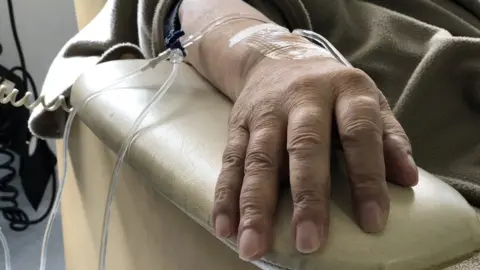 Getty Images
Getty ImagesCancer care in England has faced major disruption during the pandemic with big drops in numbers being seen following urgent referrals by GPs, figures show.
The number of people being assessed by a cancer doctor after referral fell to 79,500 in April - a drop of 60% compared to the same month last year.
Meanwhile, patients starting treatment dropped to 10,800 - 20% below 2019.
The NHS said it had tried to protect services - and some of the impact was due to people not seeking treatment.
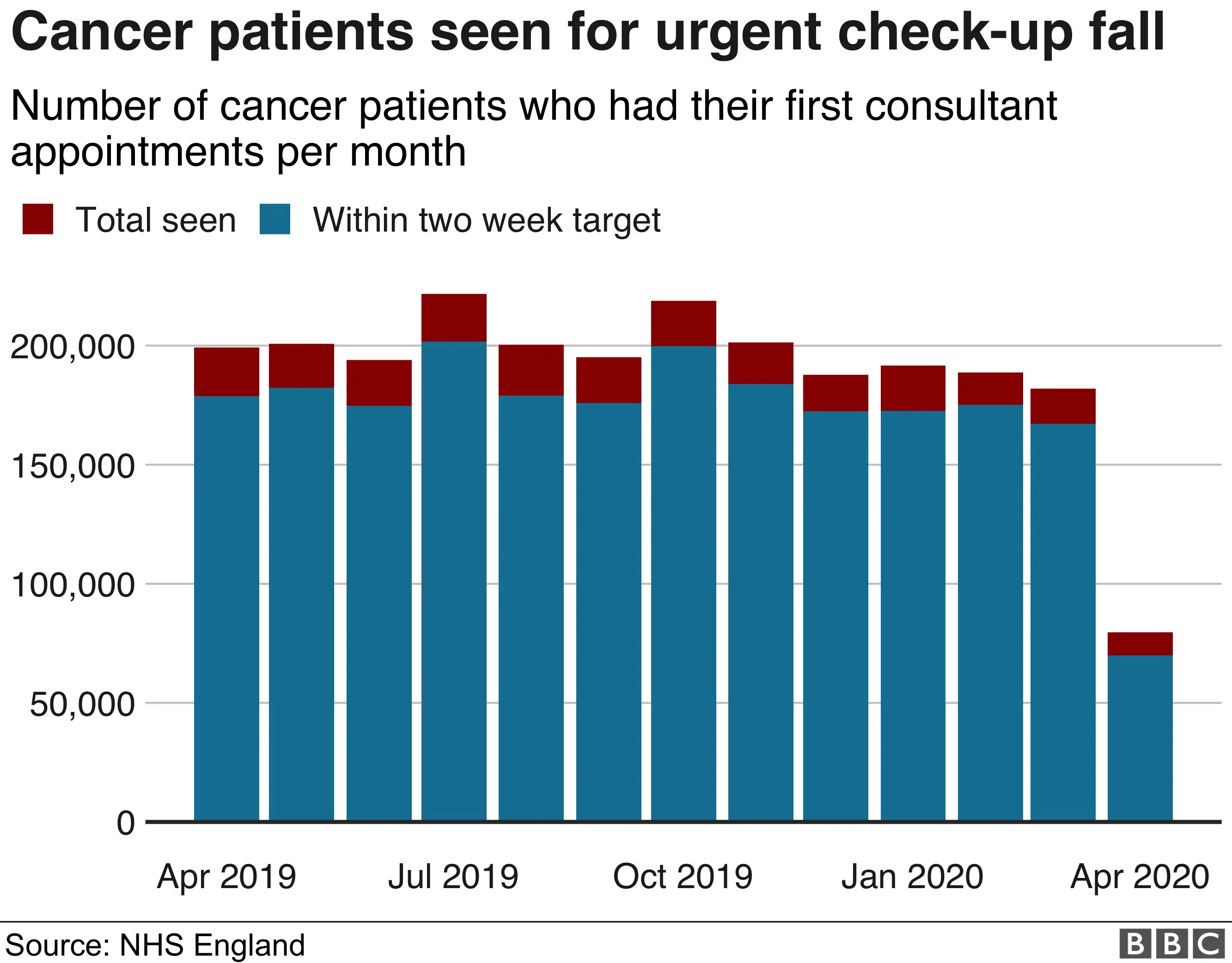 Chart
Chart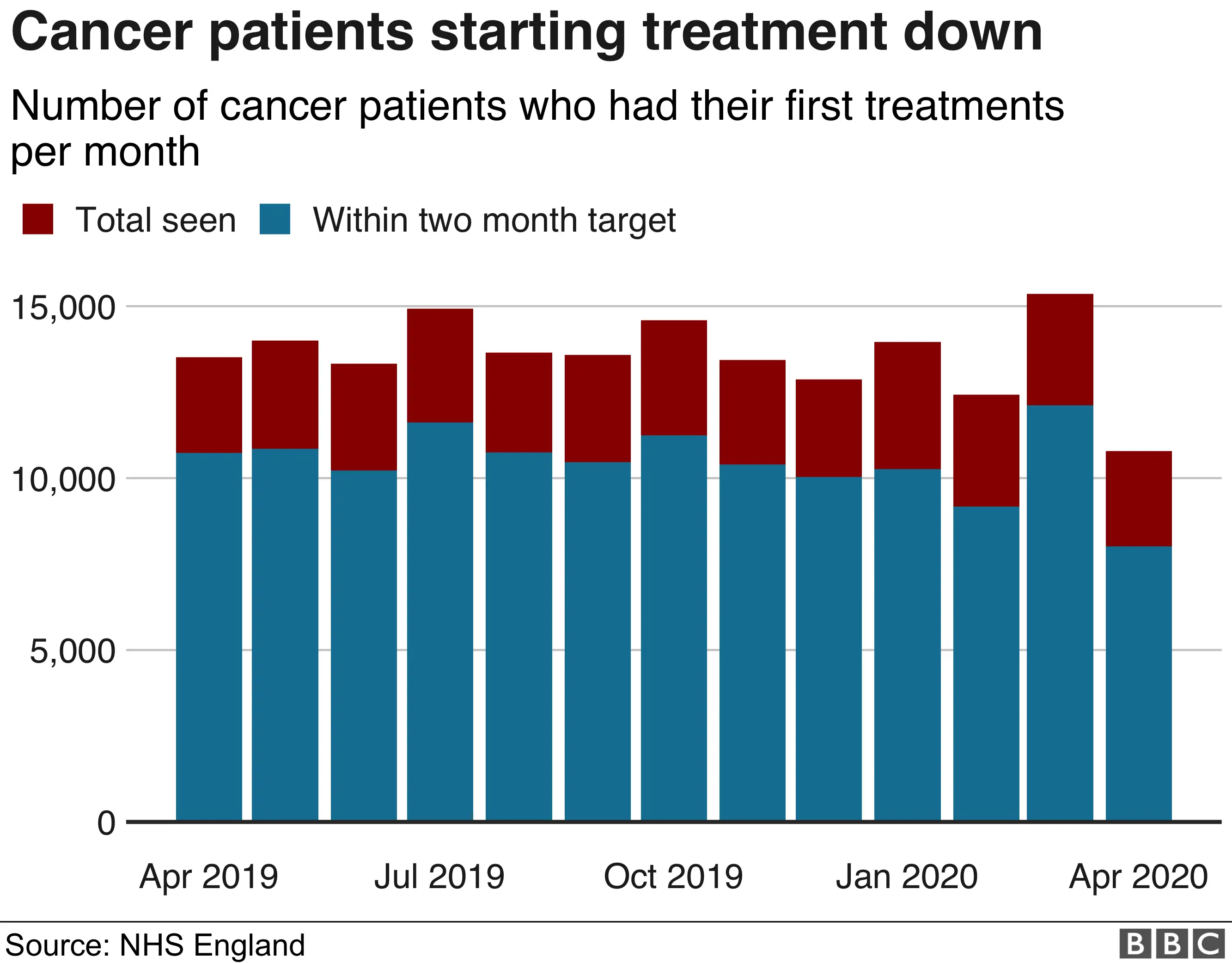
NHS England said a number of innovative approaches were being introduced to keep cancer care running.
This has included delivering more chemotherapy in the community and people's homes as well as creating "Covid-free" wings in hospital to protect patients.
NHS England chief executive Sir Simon Stevens said staff had gone to "great lengths" to deliver care.
And he urged people to come forward for treatment amid concerns fear of the virus is deterring people from seeking help.
Figures for elsewhere in the UK have not been published yet.
Impact on patients 'extremely concerning'
 Getty Images
Getty ImagesCharities warned the disruption to services would have a devastating effect.
As well as the drop in referrals and treatment starting, Cancer Research UK estimates that there will be a backlog of more than two million people waiting for screening across the UK.
Thousands of patients have also seen their on-going treatment stopped.
Baroness Delyth Morgan, of Breast Cancer Now, said her charity has been deluged with calls from people worried about not getting treatment.
"It is extremely concerning," she said.
Lynda Thomas, of Macmillan Cancer Support, said the pandemic had "wreaked havoc" on services.
"Many people with cancer are being left to wait for next steps in fear, worrying about the long-term implications for their health, their families and their future."
'My cancer treatment has been stopped'
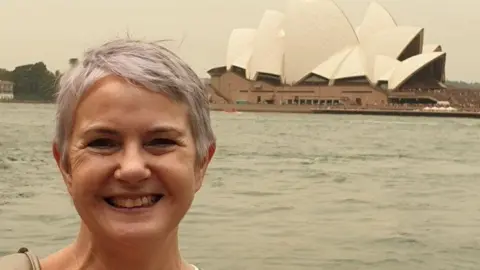 Other
OtherJoanne Addis, 54, from Stockport, was diagnosed with secondary breast cancer in 2017 only weeks after having surgery for primary breast cancer.
She has been given a drug called palbociclib ever since to slow down the cancer, but her treatment had to be stopped in April because it left her susceptible to coronavirus.
"I wasn't happy. It has kept my cancer stable for three years. I try not to think what will happen.
"There are a lot of people like me who've had to pause their cancer treatment and not all of us will have good results at the end of this.
"I'm just hoping that the risk of coronavirus drops low enough soon so I can restart my treatment."
How services have been adapted
In England - and elsewhere in the UK for that matter - NHS bosses have sought new ways to deliver cancer care.
"Covid-free" wings have been set up in hospitals to allow cancer patients to be treated.
These have been organised by 21 cancer hubs in England with lead cancer hospitals helping to coordinate care.
For example, in London this has been done by the Royal Marsden, Guy's and St Thomas' and University College London Hospitals.
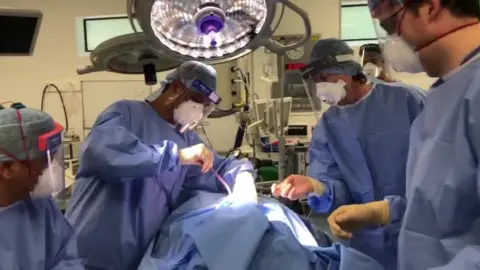 Queen Victoria Hospital
Queen Victoria HospitalThere has also been a focus on delivering care in the community and people's homes - with "chemo-buses" used in some places to allow staff to tour neighbourhoods providing chemotherapy from the back of an adapted van.
A targeted form of radiotherapy has also been rolled out, which requires fewer courses of treatment meaning patients do not have to visit hospital so often.
A&E and routine ops hit
The figures published also include data for A&E and routine operations.
Routine operations were cancelled en-masse during April to help free up space for the expected surge of coronavirus patients.
Just 41,000 underwent surgery - down from 280,000 in April 2019.
Routine work is now in the process of being re-started, although NHS bosses have said the waiting list could more than double in size by the start of next year as hospitals are struggling to get back to full capacity because of the strain of dealing with the pandemic.
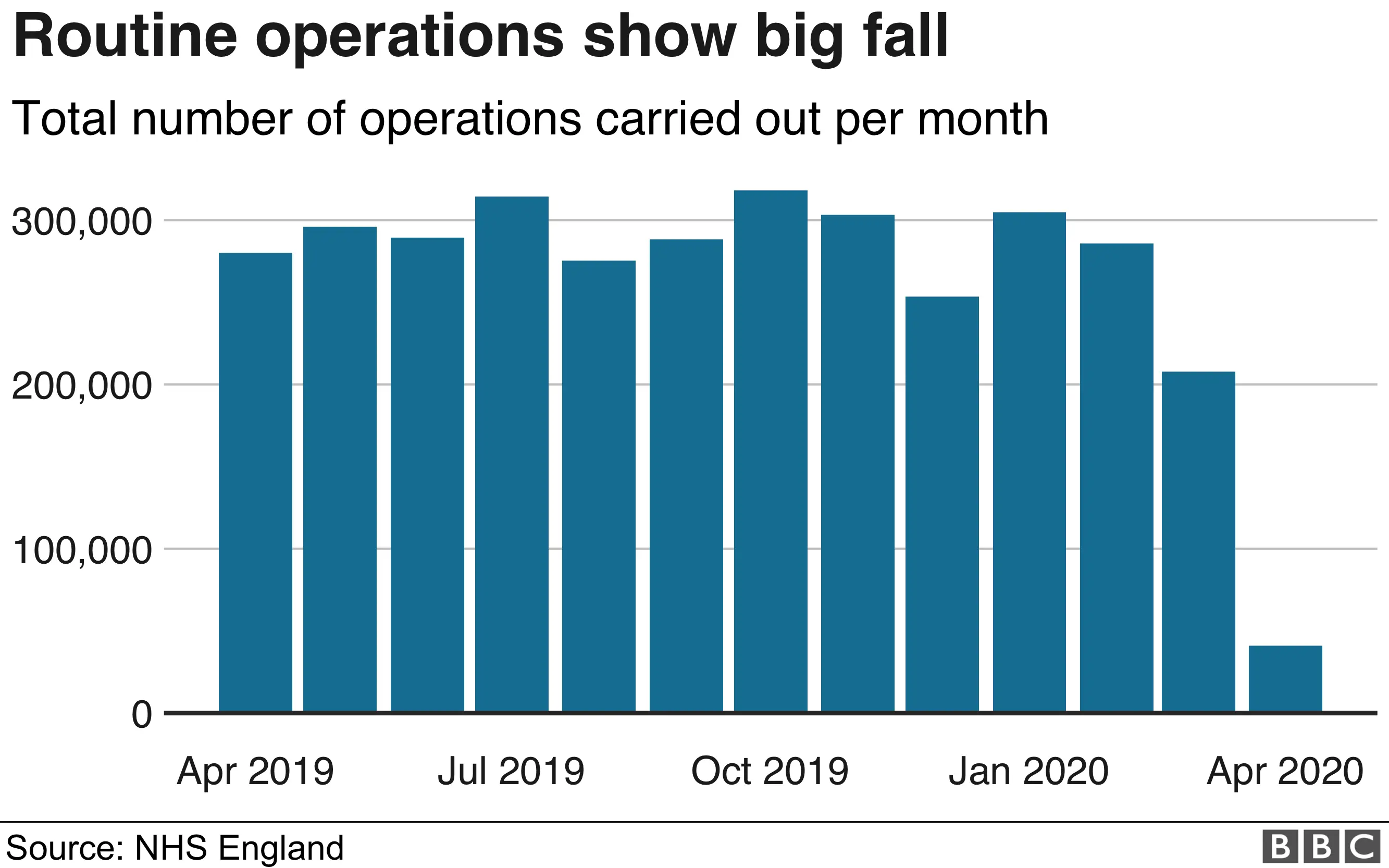
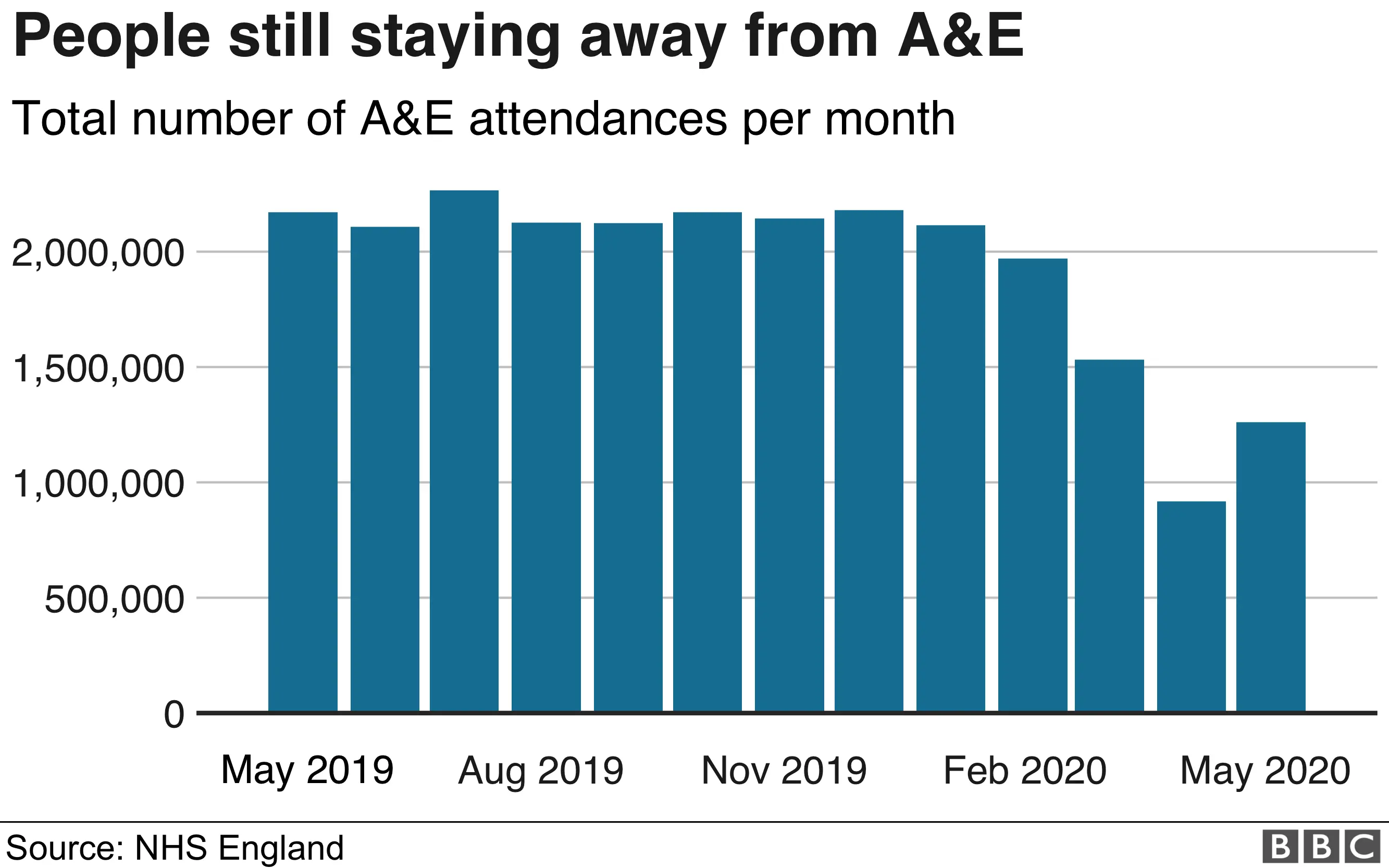
The A&E data is more recent - it covers the month of May.
It shows 1.26m people visit A&E - down from 2.17m in May 2020.
But it the numbers did represent an increase from just over 900,000 in April.
Doctors have urged patients needing urgent help to come to A&E.
Follow Nick on Twitter

- SAVING OUR NURSES: Go behind the scenes at A&E
- I MAY DESTROY YOU: The next must-see show in lockdown

